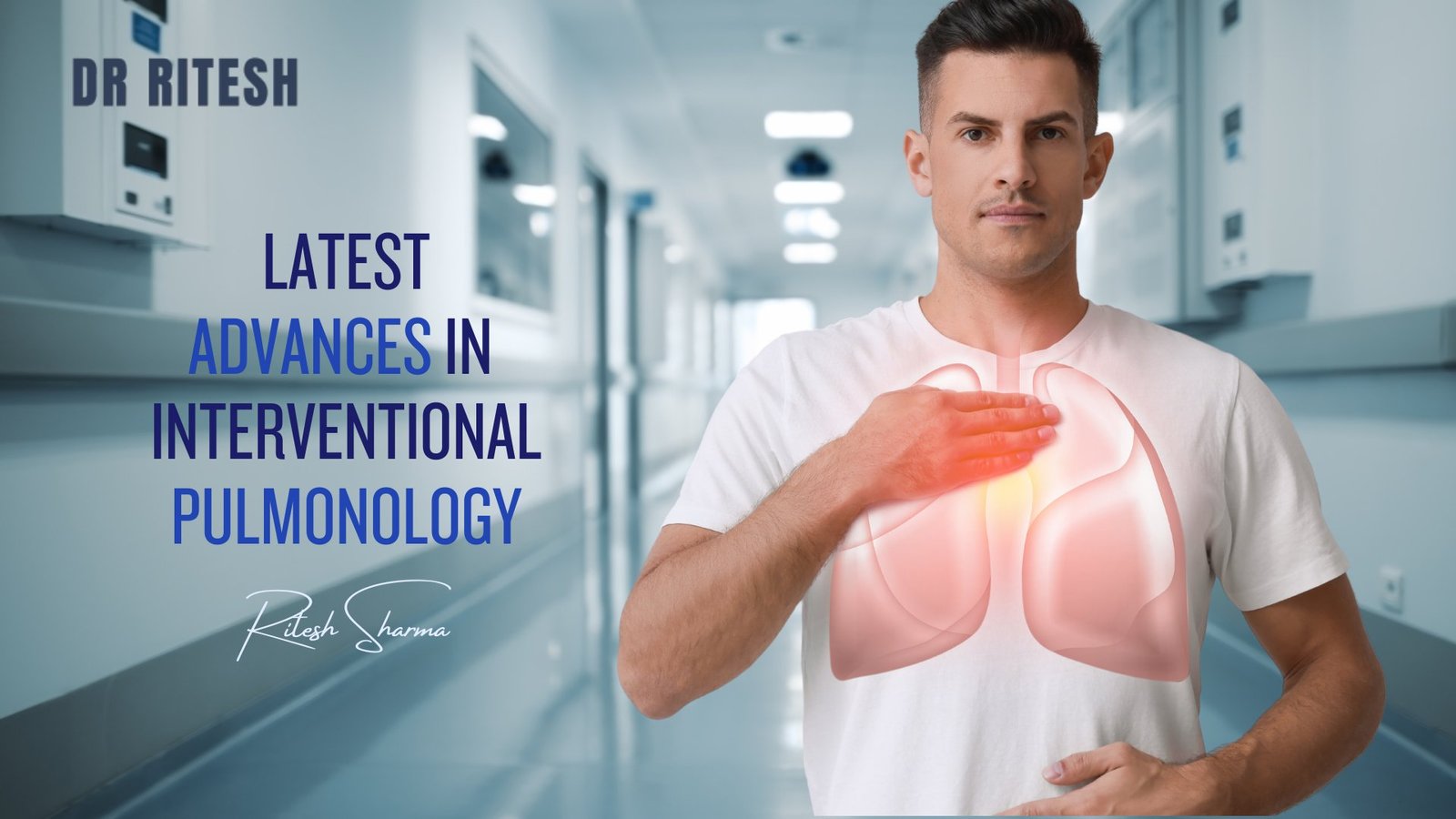Book Appointment Now

Breathe Easy: The Latest Advances in Interventional Pulmonology
Interventional pulmonology is a rapidly evolving subspecialty of pulmonary medicine that focuses on the use of advanced, minimally invasive procedures to diagnose and treat lung diseases. These cutting-edge techniques have revolutionized the way respiratory conditions are managed, offering patients improved outcomes with less discomfort and quicker recovery times. Staying abreast of the latest advances in interventional pulmonology is crucial for healthcare providers and patients alike, as it ensures access to the most effective and least invasive treatments available.
Understanding Interventional Pulmonology
Interventional pulmonology encompasses a wide range of procedures designed to diagnose and treat conditions affecting the lungs and airways. These procedures are typically performed using bronchoscopes and other specialized instruments, allowing for direct visualization and intervention within the respiratory system. Common procedures in interventional pulmonology include:
- Bronchoscopy: A flexible tube with a camera is inserted into the airways to examine the lungs and collect tissue samples.
- Endobronchial Ultrasound (EBUS): Combines bronchoscopy with ultrasound to obtain detailed images and guide biopsies of lymph nodes and other structures within the chest.
- Airway Stenting: Placement of stents to keep airways open in patients with obstructions due to tumors or other conditions.
- Cryotherapy: Uses extreme cold to destroy abnormal tissue within the airways.
- Thermal Ablation: Applies heat to remove or shrink abnormal growths in the lungs.

Technological Innovations
The field of interventional pulmonology has seen remarkable technological advancements in recent years, which have significantly enhanced the precision and effectiveness of diagnostic and therapeutic procedures. Some of the most notable innovations include:
- Robotic Bronchoscopy: This cutting-edge technology allows for more precise navigation within the airways, enabling physicians to reach and biopsy small or difficult-to-access lesions with greater accuracy. Robotic systems provide enhanced stability and control, reducing the risk of complications and improving diagnostic yield.
- Endobronchial Ultrasound (EBUS): EBUS has revolutionized the staging and diagnosis of lung cancer and other thoracic conditions. By combining ultrasound imaging with bronchoscopy, EBUS allows for real-time visualization of structures within the chest, guiding fine-needle aspirations and biopsies with pinpoint accuracy.
- Electromagnetic Navigation Bronchoscopy (ENB): ENB uses electromagnetic technology to create a 3D map of the airways, aiding in the precise localization and sampling of lung nodules. This technique enhances the ability to diagnose and treat lung lesions that are otherwise challenging to reach.
These technological advancements have not only improved the accuracy and safety of interventional pulmonology procedures but also expanded the range of conditions that can be effectively managed using minimally invasive techniques.
Advanced Diagnostic Techniques
Early and accurate diagnosis is crucial for the effective management of lung diseases. Advanced diagnostic techniques in interventional pulmonology are making it possible to detect conditions at earlier stages and with greater precision. Some of these techniques include:
- Radial Endobronchial Ultrasound (R-EBUS): This technique involves the use of a small ultrasound probe at the tip of a bronchoscope to provide detailed images of peripheral lung nodules. R-EBUS enhances the ability to diagnose small and peripheral lung lesions that are not easily accessible with traditional bronchoscopy.
- Cryobiopsy: A minimally invasive technique that uses a cryoprobe to obtain larger and better-preserved tissue samples from the lungs. Cryobiopsy is particularly useful in diagnosing interstitial lung diseases and other diffuse parenchymal lung disorders.
- Liquid Biopsy: An emerging technique that involves analyzing a blood sample to detect cancer cells or DNA fragments shed by tumors. While still in the research phase for many applications, liquid biopsy holds promise for non-invasive cancer diagnosis and monitoring.
These advanced diagnostic techniques offer several benefits over traditional methods, including improved accuracy, reduced risk of complications, and the ability to obtain high-quality tissue samples for pathological analysis. By enabling earlier and more precise diagnoses, these techniques play a critical role in guiding effective treatment strategies and improving patient outcomes.

Therapeutic Interventions
Interventional pulmonology is not just about diagnosing lung conditions; it also offers a range of therapeutic procedures that can significantly improve patient outcomes. Some of the latest advancements in therapeutic interventions include:
- Airway Stenting: This procedure involves placing a stent in the airway to keep it open in cases of obstruction caused by tumors, strictures, or other conditions. Newer stent designs and materials have improved their efficacy and reduced complications, providing immediate relief from symptoms like shortness of breath and improving the quality of life for patients.
- Thermal Ablation: Techniques such as radiofrequency ablation (RFA) and microwave ablation (MWA) use heat to destroy abnormal tissue within the lungs. These procedures are particularly effective for treating small tumors and metastases, offering a minimally invasive alternative to surgery.
- Cryotherapy: This involves using extreme cold to freeze and destroy abnormal tissue, such as tumors or granulation tissue. Cryotherapy is often used to treat central airway obstructions and can also help in palliative care by reducing symptoms in patients with advanced lung cancer.
- Bronchial Thermoplasty: A specialized procedure for patients with severe asthma that uses thermal energy to reduce the smooth muscle mass in the airways, thereby decreasing their ability to constrict. This can lead to a significant reduction in asthma exacerbations and improve overall asthma control.
These therapeutic interventions offer minimally invasive options for managing various pulmonary conditions, providing patients with effective treatments that come with shorter recovery times and fewer complications compared to traditional surgical methods.
Patient Benefits
The advancements in interventional pulmonology have had a profound impact on patient care, offering numerous benefits that enhance the overall patient experience and outcomes:
- Minimally Invasive Procedures: The use of minimally invasive techniques means that patients experience less pain, fewer complications, and shorter hospital stays compared to traditional surgical procedures. This leads to faster recovery times and a quicker return to normal activities.
- Improved Diagnostic Accuracy: Technologies like EBUS, ENB, and robotic bronchoscopy have significantly improved the accuracy of diagnoses, allowing for earlier detection and more precise characterization of lung conditions. This enables timely and targeted treatment, which is crucial for conditions like lung cancer.
- Enhanced Quality of Life: Therapeutic interventions such as airway stenting and bronchial thermoplasty provide immediate relief from symptoms, improving breathing and overall quality of life for patients with obstructive airway diseases or severe asthma.
- Personalized Treatment Plans: The ability to obtain high-quality tissue samples and detailed imaging allows for more personalized treatment plans. Physicians can tailor therapies based on the specific characteristics of a patient’s condition, leading to more effective and individualized care.
These benefits highlight the transformative potential of interventional pulmonology, demonstrating how these advancements are making a significant difference in the lives of patients with respiratory conditions.

Future Directions
The future of interventional pulmonology is bright, with ongoing research and development promising even more innovative solutions for respiratory care. Emerging trends and technologies include:
- Artificial Intelligence and Machine Learning: AI and machine learning are being integrated into diagnostic tools to enhance image analysis, improve diagnostic accuracy, and predict patient outcomes. These technologies have the potential to revolutionize how pulmonary diseases are diagnosed and treated.
- Gene Therapy: Research is ongoing into the use of gene therapy for treating genetic lung disorders. This approach aims to correct defective genes, offering hope for patients with conditions like cystic fibrosis and alpha-1 antitrypsin deficiency.
- Advanced Imaging Techniques: Innovations in imaging, such as 4D CT scans and molecular imaging, are providing more detailed and dynamic views of the lungs, aiding in better diagnosis and treatment planning.
- Telemedicine and Remote Monitoring: The use of telemedicine and wearable devices for remote monitoring is becoming increasingly important, allowing for continuous assessment and management of chronic respiratory conditions from the comfort of patients’ homes.
These future directions indicate that interventional pulmonology will continue to evolve, offering more precise, personalized, and less invasive options for diagnosing and treating lung diseases.
The field of interventional pulmonology is at the forefront of medical innovation, providing groundbreaking diagnostic and therapeutic techniques that improve patient outcomes and quality of life. Staying updated with the latest advances ensures that healthcare providers can offer the best possible care to their patients. As we look to the future, the integration of new technologies and methods promises to further revolutionize respiratory medicine.
If you or a loved one are dealing with a respiratory condition and want to learn more about the latest advancements in interventional pulmonology, we invite you to book a consultation with Dr. Ritesh. Our clinic is dedicated to providing state-of-the-art care using the most advanced techniques available. Contact us today to schedule an appointment and take the first step towards better lung health.


